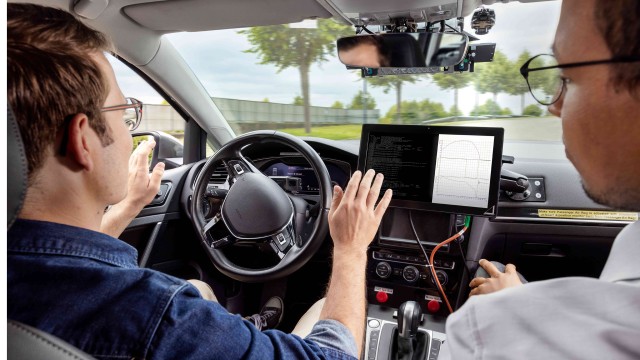Stuttgart and Munich, Germany – Software is the linchpin for the future of mobility. No other company can match the solutions and technology Bosch offers for the software-defined vehicle across all domains – from central vehicle computers to cloud solutions to semiconductors. Here, Bosch benefits from its strength not only in automotive software but also in the hardware required for it, and is already posting robust growth in vehicle computers. The company expects sales of $3.2 billion in 2026 from computers for driver assistance and infotainment alone. Overall, business developments for Bosch are positive, even though the environment remains volatile and challenging.
Contact:
Tim Wieland
Phone: +1 248 876-7708
Email: Tim.Wieland@us.bosch.com
Twitter: @timwieland
About Bosch
Having established a presence in North America in 1906, today the Bosch Group employs 37,000 associates in more than 100 locations in the region (as of Dec. 31, 2022). Bosch generated consolidated sales of $15.1 billion in the U.S., Canada, and Mexico in 2022. For more information visit www.bosch.us, www.bosch.ca and www.bosch.mx.
The Bosch Group is a leading global supplier of technology and services. It employs roughly 421,000 associates worldwide (as of December 31, 2022). The company generated sales of $93.1 billion in 2022. Its operations are divided into four business sectors: Mobility Solutions, Industrial Technology, Consumer Goods, and Energy and Building Technology. As a leading IoT provider, Bosch offers innovative solutions for smart homes, Industry 4.0, and connected mobility. Bosch is pursuing a vision of mobility that is sustainable, safe, and exciting. It uses its expertise in sensor technology, software, and services, as well as its own IoT cloud, to offer its customers connected, cross-domain solutions from a single source. The Bosch Group’s strategic objective is to facilitate connected living with products and solutions that either contain artificial intelligence (AI) or have been developed or manufactured with its help. Bosch improves quality of life worldwide with products and services that are innovative and spark enthusiasm. In short, Bosch creates technology that is “Invented for life.” The Bosch Group comprises Robert Bosch GmbH and its roughly 470 subsidiary and regional companies in over 60 countries. Including sales and service partners, Bosch’s global manufacturing, engineering, and sales network covers nearly every country in the world. With its more than 400 locations worldwide, the Bosch Group has been carbon neutral since the first quarter of 2020. The basis for the company’s future growth is its innovative strength. At 136 locations across the globe, Bosch employs some 85,500 associates in research and development, of which nearly 44,000 are software engineers.
The company was set up in Stuttgart in 1886 by Robert Bosch (1861–1942) as “Workshop for Precision Mechanics and Electrical Engineering.” The special ownership structure of Robert Bosch GmbH guarantees the entrepreneurial freedom of the Bosch Group, making it possible for the company to plan over the long term and to undertake significant upfront investments in the safeguarding of its future. Ninety-four percent of the share capital of Robert Bosch GmbH is held by Robert Bosch Stiftung GmbH, a charitable foundation. The remaining shares are held by Robert Bosch GmbH and by a corporation owned by the Bosch family. The majority of voting rights are held by Robert Bosch Industrietreuhand KG, an industrial trust. The entrepreneurial ownership functions are carried out by the trust.
Additional information is available online at www.bosch.com, www.iot.bosch.com, www.bosch-press.com, www.twitter.com/BoschPress
Exchange rate: 1 EUR = 1.0538






















